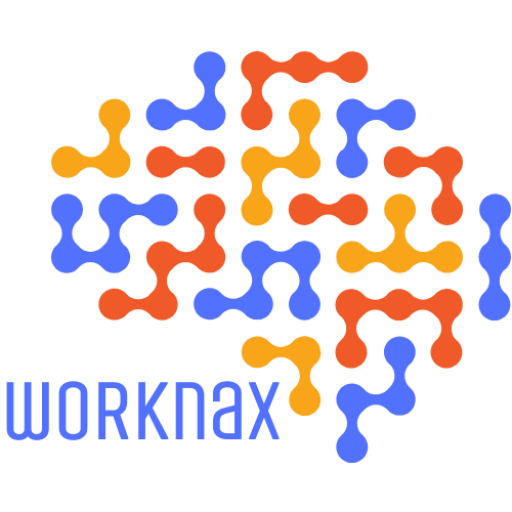Anúncios
In today’s rapidly evolving job market, the ability to learn and adapt is more important than ever. As technology creates continuous shifts in industries, workers must navigate these changes to remain relevant. This constant state of flux demands that individuals hone their skills to keep pace with new developments. The drive to upskill not only bolsters an individual’s capabilities but also significantly enhances their earning potential over time. The connection between acquiring new skills and increasing income is undeniably strong, warranting a comprehensive exploration of its various dimensions.
To begin with, the rise of the gig economy has underscored the necessity of being adaptable. Freelancers and independent contractors find themselves competing for projects in a landscape that favors those with diverse skill sets. Investing in learning highly sought-after skills, including coding, digital marketing, and graphic design, sets these individuals apart from their peers. This broad adaptability enables them to tackle a range of projects, maximizing their opportunities to earn a living and grow their financial stability.
In addition to the gig economy, the trend towards lifelong learning has gained significant momentum in recent years. Online educational platforms such as Coursera, Udemy, and edX have made it incredibly easy for anyone to learn new skills from the comfort of their home. This democratization of education has empowered professionals to pursue knowledge that aligns with their career aspirations and goals, thus broadening their opportunities. In this new landscape, having a degree is not the sole determinant of success; rather, what matters is demonstrating practical competence in areas that can directly impact income potential.
Networking represents another critical factor that influences income growth through skill acquisition. As individuals polish their skills and expand their areas of expertise, they often connect with like-minded professionals who share similar goals. These connections can lead to job opportunities, collaborative projects, or mentorship arrangements, all of which can amplify one’s income potential. Building and leveraging a professional network can create a ripple effect, allowing individuals to benefit from their newly acquired skills in more significant ways.
Furthermore, the relationship between skill specialization and income cannot be overlooked. Many industries have niche skill sets that are currently in high demand. For instance, professionals specializing in cutting-edge technologies like artificial intelligence and machine learning often command significantly higher salaries. By specializing in a particular field, workers can differentiate themselves from the competition and position themselves for roles that justify higher pay rates. This principle applies across a variety of professional sectors, emphasizing the importance of identifying unique skills to develop.
Many employers actively seek candidates demonstrating a commitment to continuous personal and professional growth. A continuous learning mindset enhances an employee’s perceived value within a company or organization. When hiring managers see that an individual is continually working to improve their skill set, they often perceive them as ambitious and motivated, desirable traits in any workplace. As a result, such attributes often lead to promotions and salary increases, highlighting the vital link between skill development and enhanced earning possibilities.
Additionally, the rise of remote work opportunities has created new avenues for income generation. As more companies embrace flexible work arrangements, geographical constraints no longer hinder job seekers. Individuals can now apply for remote positions located in higher-paying regions without needing to relocate. Learning skills relevant to remote work, such as virtual project management or specific customer service software, opens doors to lucrative roles and increases income possibilities. This newfound flexibility allows individuals to chase higher earnings without the limitations of location.
The tech sector has notably transformed income generation prospects through skill acquisition. Demand for roles in software development, cybersecurity, and data analysis is witnessing exponential growth. Organizations are eager to compensate individuals capable of contributing to their digital evolution, often providing competitive salaries. By learning relevant and market-aligned tech skills, workers can access high-paying jobs that were previously unattainable for them, cementing the importance of continuous skill development in this field.
Another essential aspect lies in the adaptability required for transitioning between industries. Economic fluctuations frequently prompt job displacement, making it vital for workers to pivot and explore new sectors. For instance, numerous professionals from traditional industries have successfully transitioned into technology-related roles after acquiring new skills such as coding or digital marketing. This adaptability often results in higher salary levels compared to their previous positions, illustrating the financial returns of upskilling in evolving markets.
Soft skills, including emotional intelligence and communication ability, can also significantly elevate earning potential. While technical skills are undoubtedly essential in today’s competitive job landscape, the capacity to communicate effectively, demonstrate leadership, and collaborate seamlessly remains invaluable. Employers recognize that individuals proficient in soft skills often drive better results, making them more attractive candidates when negotiating salaries or pursuing promotions within their companies.
When examining increasing income through skill development, it is crucial to adopt a holistic perspective. Learning new competencies is valuable, but putting them into practice in real-world situations is equally important. Practical experience solidifies knowledge and enhances one’s ability to showcase skills to prospective employers. Pursuing internships or volunteer roles can offer invaluable platforms for gaining hands-on experience, making the learned skills more appealing and recognized in the job market.
Moreover, the role of certifications and formal degrees in skill validation should not be underestimated. While acquiring new skills is beneficial in its own right, possessing accredited proof of expertise holds significant value for employers. Recognized certifications can elevate one’s resume and provide a competitive advantage in a crowded field of candidates. This added affirmation not only increases the likelihood of employment but also lays a solid foundation for negotiating higher salaries upon hiring.
In addition to individual efforts, corporate training programs also directly contribute to income growth. Many organizations recognize the importance of investing in employee skill enhancement to develop a more competent and capable workforce. By providing training sessions, workshops, or financial support for continued education, employers can cultivate their employees’ skills while simultaneously increasing productivity. Employees who take advantage of these opportunities often find themselves in line for raises and advancements within the company.
However, it is crucial not to overlook the significance of self-discipline and motivation in the learning process. The path of acquiring new skills can be rigorous and requires strong commitment to persistence and time management. Individuals who prioritize their personal growth and demonstrate a steadfast dedication to learning generally tend to reap greater financial rewards. Effectively structuring time and setting realistic, achievable goals can greatly enhance the learning experience and the chances of success.
As we look towards the future, it is clear that technological advancements will continue to reshape industries and job markets. This continuous evolution necessitates a proactive approach to acquiring new skills and staying ahead of the curve. The ability to remain flexible, adaptive, and willing to learn consistently will be the defining hallmark of success and earning potential for the future workforce. Therefore, professionals today must recognize the importance of not only their existing knowledge but also their ability and desire to learn and adapt over time.
In summary, the correlation between acquiring new skills and generating income is compelling and evident. By continually investing in skill enhancement, individuals can significantly augment their versatility, marketability, and income potential. The capacity to adapt to shifting market demands, leverage networking opportunities, and specialize in niche areas directly contributes to amplifying income growth prospects. As the job landscape evolves, those who are dedicated to lifelong learning will undoubtedly reap the financial rewards of their efforts and adaptability. The future clearly belongs to those who embrace the ongoing journey of learning, and with it, the potential for personal and professional success.



